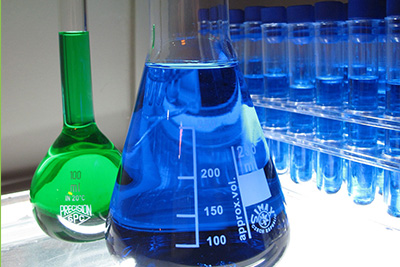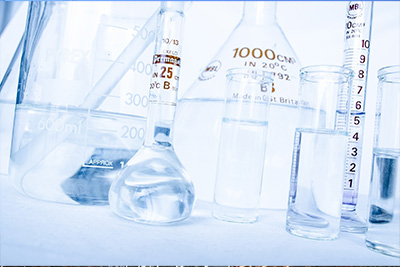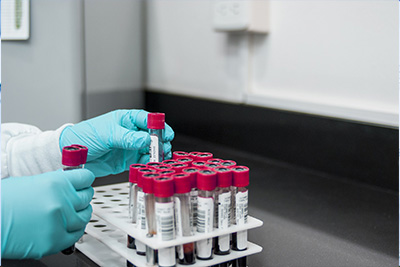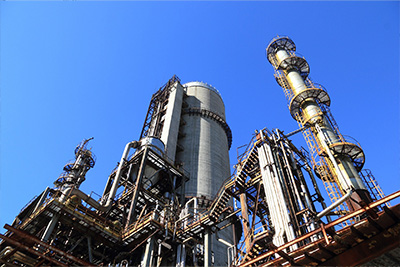-
![How Methyltin Merc···]() 2024-12-06 How Methyltin Mercaptide Contributes···
2024-12-06 How Methyltin Mercaptide Contributes···Methyltin mercaptide plays a crucial role in enhancing the recycling efficiency of post-consumer polyvinyl chloride (PVC) materials. By incorporating methyltin mercaptide as a stabilizer, the degradation of PVC during the recycling process is significantly reduced. This stabilizer effectively prevents the breakdown of PVC molecular chains, thereby maintaining the material's mechanical properties and extending its service life. Consequently, the use of methyltin mercaptide leads to higher quality recycled PVC products, contributing to more sustainable waste management practices and resource conservation.
read more > -
![Sustainable Altern···]() 2024-12-06 Sustainable Alternatives to Methylti···
2024-12-06 Sustainable Alternatives to Methylti···This article explores sustainable alternatives to methyltin mercaptide in polyvinyl chloride (PVC) stabilization. It discusses the environmental challenges associated with the use of organotin compounds and highlights recent innovations in developing eco-friendly stabilizers. These alternatives aim to maintain or improve PVC processing and end-use properties while reducing toxicity and environmental impact. The paper reviews various non-toxic stabilizer options, such as metal salts, organic compounds, and natural extracts, and evaluates their effectiveness and limitations. Overall, it emphasizes the importance of advancing sustainable technologies in the PVC industry to ensure long-term environmental protection.
read more > -
![Investigating the ···]() 2024-12-05 Investigating the Toxicological Prof···
2024-12-05 Investigating the Toxicological Prof···This study examines the toxicological profile of methyltin mercaptide, focusing on its health implications and recommended exposure limits. The research highlights potential risks associated with exposure to this compound, emphasizing the need for stringent safety measures in occupational and environmental settings. The findings contribute to a better understanding of the health effects and guide the establishment of safe exposure thresholds to protect human health.
read more > -
![Methyltin Mercapti···]() 2024-12-05 Methyltin Mercaptide and Its Role in···
2024-12-05 Methyltin Mercaptide and Its Role in···Methyltin mercaptides play a crucial role in minimizing plasticizer migration within flexible polyvinyl chloride (PVC) applications. These organotin compounds act as effective stabilizers, enhancing the overall performance of flexible PVC materials by preventing the loss of plasticizers. This is particularly important in various end-use scenarios where maintaining material integrity and longevity is essential, such as in the manufacturing of cables, tubing, and other flexible plastic products. By incorporating methyltin mercaptides, the stability and durability of flexible PVC can be significantly improved, extending the product lifespan and ensuring consistent quality over time.
read more > -
![High-Performance M···]() 2024-12-05 High-Performance Methyltin Mercaptid···
2024-12-05 High-Performance Methyltin Mercaptid···This article discusses the development of high-performance methyltin mercaptides, which are advanced formulations designed to enhance the thermal stability of polyvinyl chloride (PVC). These formulations offer superior thermal resistance, thereby improving the longevity and durability of PVC materials. The improved thermal stability is achieved through optimized chemical structures and compositions, making these methyltin mercaptides highly effective additives for various PVC applications.
read more > -
![The Influence of M···]() 2024-12-05 The Influence of Methyltin Mercaptid···
2024-12-05 The Influence of Methyltin Mercaptid···The influence of methyltin mercaptide on the physical properties of polyvinyl chloride (PVC) was investigated, focusing on its effects on tensile strength, flexibility, and clarity. The study revealed that the addition of methyltin mercaptide significantly enhances the tensile strength and flexibility of PVC, while also improving its optical clarity. These findings highlight the potential of methyltin mercaptide as an effective additive for modifying PVC to meet specific application requirements.
read more > -
![Exploring the Role···]() 2024-12-05 Exploring the Role of Methyltin Merc···
2024-12-05 Exploring the Role of Methyltin Merc···This study investigates the role of methyltin mercaptide in enhancing the durability of polyvinyl chloride (PVC) for long-term outdoor applications. Methyltin mercaptide acts as an effective stabilizer, significantly improving PVC's resistance to thermal degradation and UV-induced discoloration. The research demonstrates that incorporating methyltin mercaptide into PVC formulations can extend the material's lifespan outdoors, making it more suitable for construction and automotive applications where prolonged exposure to environmental stressors is inevitable. This finding underscores the potential of methyltin mercaptide as a crucial additive in formulating robust PVC materials for enduring outdoor use.
read more > -
![Analytical Techniq···]() 2024-12-05 Analytical Techniques for Detecting ···
2024-12-05 Analytical Techniques for Detecting ···This review examines various analytical techniques used to detect methyltin mercaptide residues in plastic products. It covers chromatographic methods, such as gas chromatography (GC) and high-performance liquid chromatography (HPLC), alongside mass spectrometry (MS) for enhanced sensitivity and specificity. The article discusses sample preparation strategies, including solvent extraction and derivatization, crucial for accurate residue detection. Additionally, it highlights the importance of method validation and quality control in ensuring reliable results. This comprehensive overview aids researchers and manufacturers in understanding and implementing effective analytical approaches to ensure safety and compliance.
read more > -
![Heat Stability Per···]() 2024-12-05 Heat Stability Performance of Methyl···
2024-12-05 Heat Stability Performance of Methyl···The heat stability performance of methyltin mercaptide in PVC products was evaluated under various processing conditions. The study revealed that the thermal stability of methyltin mercaptide is significantly influenced by factors such as temperature, processing time, and the presence of other additives. High temperatures and extended processing times were found to degrade the stabilizing effect of methyltin mercaptide, leading to increased degradation of the PVC matrix. Additionally, interactions with other additives like epoxides and phenolic antioxidants were observed to either enhance or diminish the overall thermal stability of the PVC formulations. These findings provide insights into optimizing processing parameters to achieve better thermal stability in tin-based stabilizer systems for PVC applications.
read more >








